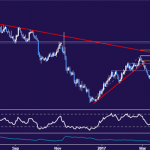This week, the U.S. Federal Reserve is the most powerful market-moving group on the planet. Pretty scary.
For months everyone’s been certain U.S. Federal Reserve would raise rates in December. They’re being dragged kicking and screaming into raising interest rates for the first time in nine years.
But after the market action Friday, all bets are off.
The high-yield credit market is officially in a Super Crash. It’s as bad as 2008-2009. If you’re not invested, this means crazy opportunity ahead – I’m talking “buying a dollar for 10 cents” kind of opportunity. More on that very soon, right here.

If you look at credit spreads, oil, and numbers like the PMI, it would be unprecedented for the Fed to raise rates in such an ugly environment, but these are unusual times and this Fed is unusually incompetent.
I would note that the Purchasing Managers’ Index – the headline indicator of the ISM Manufacturing Index – is under 50 (November’s official PMI was 48.6), dropping for the first time in 36 months. In 2011, when the PMI hit 50, the Fed launched QE 3, and when it hit 50 again in 2012, the Fed launched QE 4.
Frankly, it doesn’t matter one whit whether the Fed raises rates this week or not. It has already mismanaged another credit cycle and one cowardly 25-basis-point move coupled with a bunch of words designed to soothe spoiled markets about how it won’t be followed by more hikes won’t absolve the Fed of its sins.
The Fed says it is data-dependent, but it doesn’t know how to interpret the data on which it depends. It confuses structural employment trends with cyclical ones and is the only group of people in the country that doesn’t realize that the prices of everyday goods and services are rising sharply (with the exception of energy-related items). It also hasn’t figured out that low interest rates retard rather than stimulate economic growth because it doesn’t understand the first thing about human nature or behavioral economics (and its chair is married to one of the foremost behavioral economists in the world!). The fact that inflation expectations are so low is not a sign that investors believe that the prices of goods and services are rising slowly or threatening to fall; rather, it is a sign that the world is threatened with a massive debt deflation caused by the accumulation of too much debt that can never be repaid except through currency devaluation, massive inflation, or default.














Leave A Comment